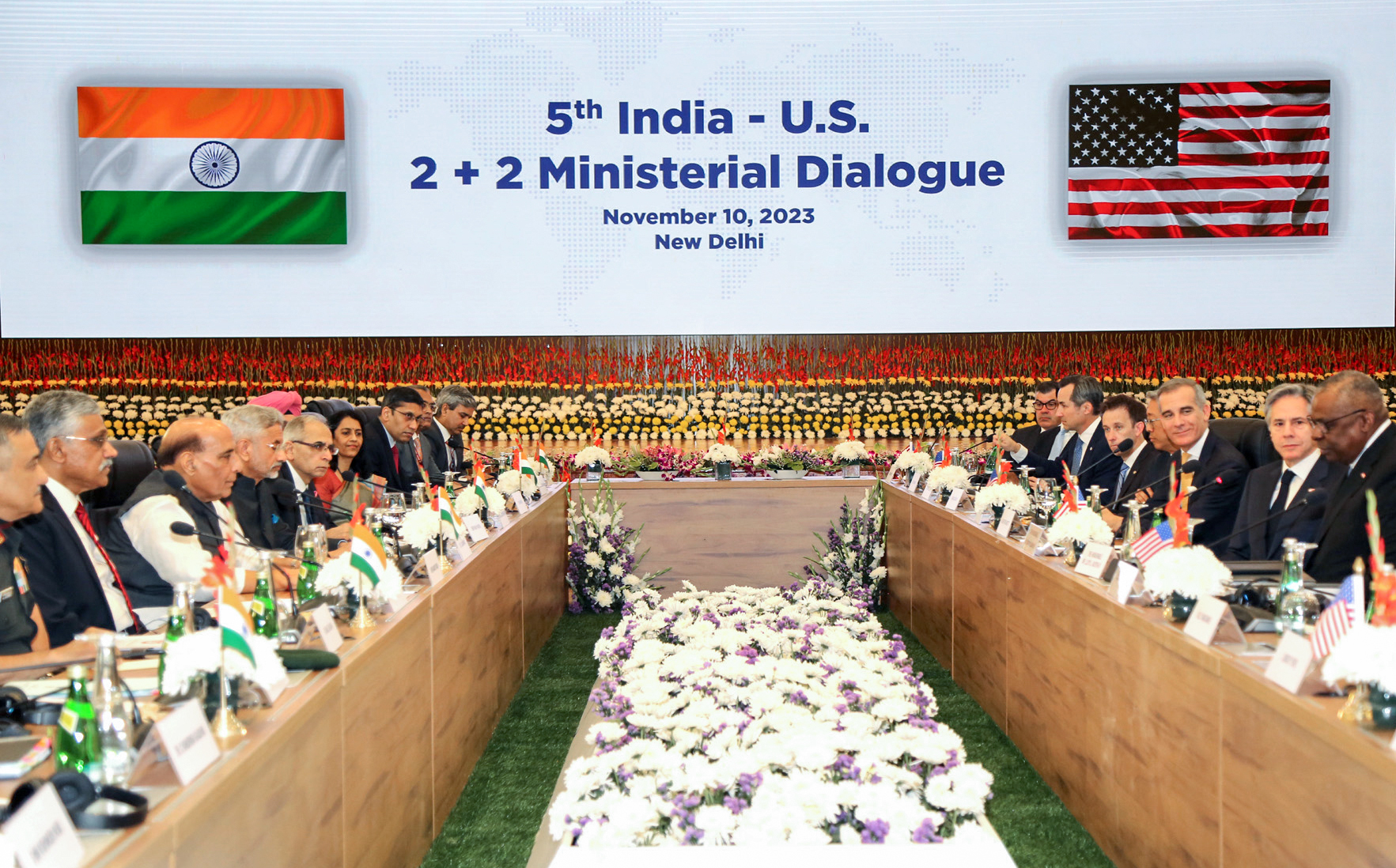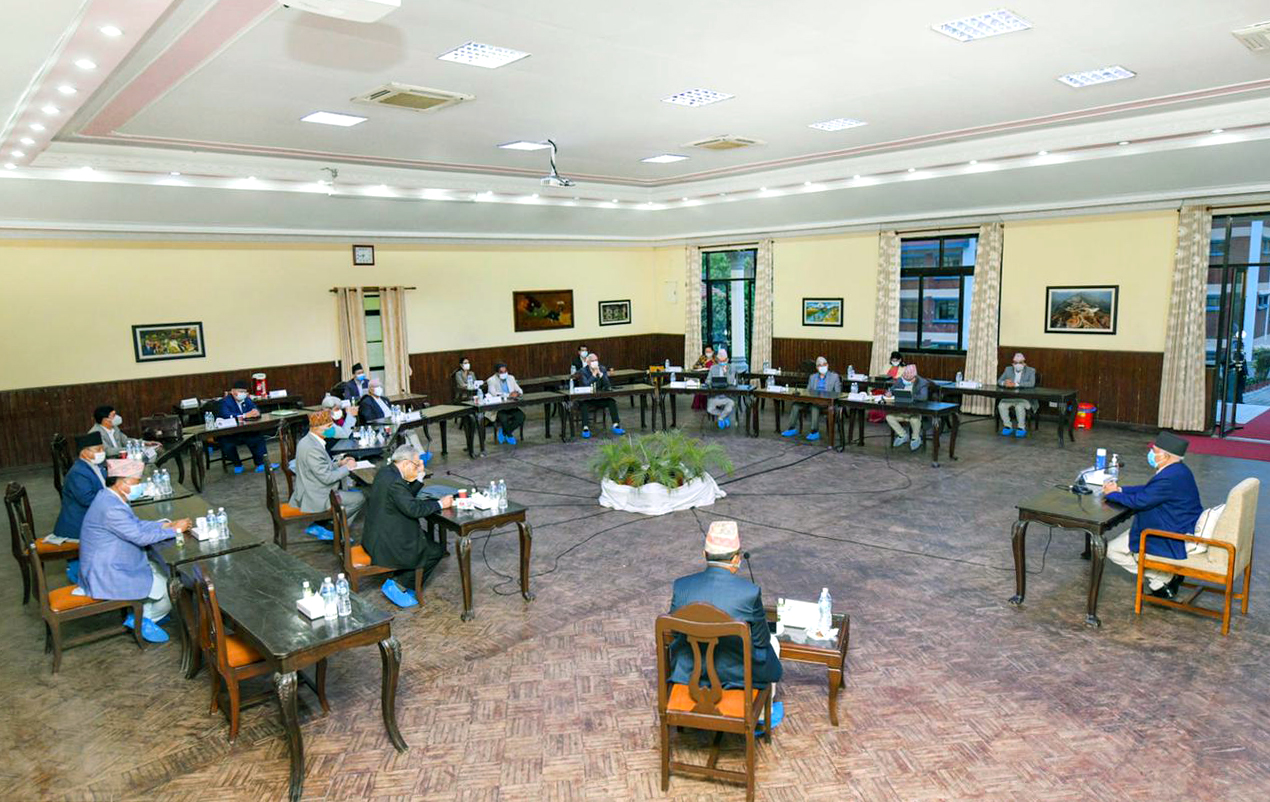India has committed to work on three major areas highlighted in the Delhi Declaration. These include Countering Terrorist Exploitation of ICT and Emerging Technologies; Threats and opportunities related to new payment technologies and fundraising methods; and Threats posed by the misuse of unmanned aerial systems (UAS)
Sanur Sharma
Technology is used as a tool for advancements in society and as a means for development. However, due to the ease of availability of new and emerging technologies at lower costs, it is increasingly being leveraged by non-state actors and terrorists. Cyber harassment, virtual warfare, information warfare, cyberattack, and cyber break-ins are all terms used to describe malicious activities caused by the use of computers or related technologies like Artificial Intelligence (AI), machine learning and blockchain. Non-state actors have disabled critical infrastructures by using cyber-attacks, drones and have also secured terror financing through virtual assets like crypto-currency.
Against this backdrop, India hosted the special meeting of the United Nations Security Council (UNSC) Counter-Terrorism Committee (CTC) with the theme ‘Countering the Use of New and Emerging Technology for Terrorist Purposes’. The CTC unanimously adopted the Delhi Declaration on 29 October 2022. The Declaration called for urgent action to counter the threat posed by the use of new and emerging technologies for terrorist purposes and effective implementation of various UN resolutions. It flagged concerns over increased use of cyberspace and other Information Communication Technologies (ICT), including social media.
It was the first meeting of the UNSC-CTC in India since its establishment in 2001. The UNSC adopted Resolution 1373, a counter-terrorism measure in the aftermath of the 9/11 terror attacks in the US. The objective of the CTC is to monitor the implementation of Resolution 1373. The committee comprises the 15 UNSC members.
Given that India is one of the ten non-permanent members and is also currently serving the two-year Security Council term, the meeting was organized in India. Indian Ambassador to the UN, Ruchira Kamboj, chaired the UNSC-CTC. She noted that while technology had limitless potential and innovations have altered society, it has also led to various challenges, including the spread of political unrest and social upheaval. Social media is being used to target individuals through the spread of misinformation and disinformation, while malicious use of AI, and digital payment technologies are being employed to fund terrorist organizations.
External Affairs Minister S. Jaishankar in his keynote address emphasized that the internet and social media have become tools of militants and terrorist organizations for spreading propaganda, radicalization and conspiracy theories for destabilizing societies. He further flagged that the penetration of new technology is reshaping the contours of international terrorism. He advocated that member states should increase funding for UN organs like United Nations Office of Counter Terrorism (UNOCT). India will contribute US$ 0.5 million to the UN Trust Fund for Counter Terrorism to augment its efforts in providing capacity-building support to member states in preventing and countering the threat of terrorism.
India also committed to work on three major areas highlighted in the Delhi Declaration. These include Countering Terrorist Exploitation of ICT and Emerging Technologies; Threats and opportunities related to new payment technologies and fundraising methods; and Threats posed by the misuse of unmanned aerial systems (UAS).
Emerging Challenges and Key Takeaways
Social media use by inimical actors has led to political polarization, post-truth politics and confirmation bias. AI-enabled tools and software have been widely used to create fake news, through disinformation signal generators and automatic generation of social media accounts. Even countries have employed advanced cyberwarfare operations that use AI to impede weapon systems and shut down critical infrastructures, as seen in the Russia–Ukraine conflict Covid-19 pandemic-related misinformation spread worldwide through social media platforms.
All such practices cause several security concerns that must be addressed. Proactive measures are required to counter malicious content online, while maintaining freedom of expression and a secure, free, trusted, open and interoperable internet. Financial technologies like virtual assets can be vulnerable to abuse due to the absence of proper regulations and governance measures. For instance, new blockchain technologies like bitcoin and other virtual currencies are based on a decentralized network. Various non-state actors can transfer money through these virtual currencies and indulge in money laundering.
In 2017, the ‘Wannacry’ ransomware attack held thousands of computer systems hostage while demanding ransom in bitcoins. It resulted in US$ 8 billion loss to hospitals, businesses and banks across the world. A 2019 RAND report notes that terrorist organizations like al Qaeda and its affiliates, the Islamic State of Iraq and Syria (ISIS), Hezbollah as well as lone-wolf attackers have used cryptocurrencies for drug trafficking, fund-raising, among other activities.
The Financial Action Task Force (FATF) issued guidelines in 2018 to regulate virtual assets. The FATF also took action against countries like Pakistan in June 2018 for lax regime in countering money laundering and terror funding (Pakistan was removed from the Grey List in October 2022).
In addition, the increasing use of Unmanned Aerial Vehicles and drones by state and non-state actors and terrorists have raised wider concerns. It has been evident in numerous instances in Syria, Iraq, UAE and Saudi Arabia, where drones have targeted critical infrastructures and have been used for drug and arms trafficking as well. In our own neighborhood, Pakistan’s non-state actors have also used drones to smuggle narcotics, arms and ammunitions in border areas along Rajasthan and Punjab.
EAM Jaishankar, earlier at the United Nations General Assembly in September 2022, criticized China for blocking attempts by India and the US to list terrorists responsible for 26/11 at the UNSC. He emphasized that all member states must fully cooperate in fighting against terrorism and refrain from providing safe havens. The Delhi Declaration, though, did not include India’s concerns over China’s blocking of terrorist designations at the UNSC.
There is a need to share best practices and build on existing frameworks such as the Global Counterterrorism Forum’s (GCTF) ‘Berlin Memorandum on Good Practices to Counter Terrorist use of UAS’, as highlighted by the US Representative for UN Management and Reform, at the CTC meeting in New Delhi.
The Berlin Memorandum identifies 26 practices under four key areas for states’ consideration relating to Assessing the risks, vulnerabilities and raising awareness; Enhancing information sharing, engaging with relevant stakeholders and educating the public; Implementing policies and regulations, establishing crisis planning and; Developing tactical counter measures and technical solutions.
Way Forward
Coordination between governments, the private sector, the public sector, and civil society is needed to harness new and emerging technologies for global good. While governments need to be vigilant, technology companies will have to monitor the use of technology keeping in mind the OECD principles of governance and OECD AI principles that stress on the need for an effective corporate governance framework, emphasize transparency and highlight the role of stakeholders in corporate governance.
The OECD AI principles, in addition, call for the creation of an enabling policy environment, and for building human capacity and international cooperation. Companies must be encouraged to put in place measures and enforce them to safeguard their platforms from spreading or hosting extremist content. Taking steps like shutting down or disrupting services can undermine open and free digital services and negatively impact the economy.
India’s current tenure at the UNSC will end in December 2022. The government is making dedicated efforts to make the most of this opportunity and will be hosting a ‘No Money for Terror’ conference in New Delhi on 18–19 November 2022 and also hold a UNSC briefing on challenges facing global counter-terrorism efforts. Societal awareness about this threat is also essential to thwart the challenge of digital terrorism.
Dr Sanur Sharma is Associate Fellow at Manohar Parrikar Institute for Defense Studies and Analyses.
Views expressed are of the author and do not necessarily reflect the views of the Manohar Parrrikar IDSA or of the Government of India.
This article first appeared in the Comments section of the website (www.idsa.in) of Manohar Parrikar Institute for Defense Studies and Analyses, New Delhi on November 16, 2022


























